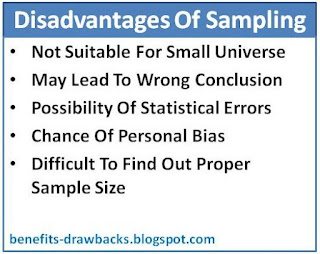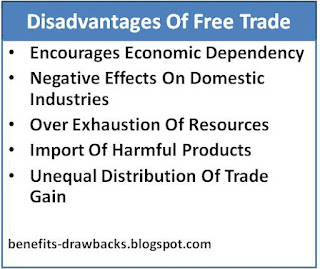Merits Or Advantages Of Random Sampling
The main advantages of random sampling can be expressed as follows:
1. Simple Method
Simplicity is one of the major advantage of this sampling method. Random sampling is very simple method of data collection. It does not require any special skill or knowledge to study the items.
2. Time And Money Saving
It takes very short time to complete the survey as it does not require to examine the whole universe. So, it is time and money saving technique.
In this method, selection of item depends on chance. So, investigator cannot select any unit as per his wish. So, it is free of personal bias.
4. Error Detection
Under random sampling, statistical errors can be easily detected.


Demerits Or Disadvantages Of Random Sampling
Some notable drawbacks of random sampling can be expressed as follows:
1. Difficult To Implement
Random sampling is very difficult to implement in such cases like scattered universe, heterogeneous population and widely dispersed items.
Also Read:
2. Higher Rate Of Error
It has larger error rate than stratified sampling.
3. Applicability
Random sampling is not applicable without the complete and up to date list of all items in the universe.
4. Monotony
Investigator may suffer from monotony because of recitative work for a long time while collecting data.















